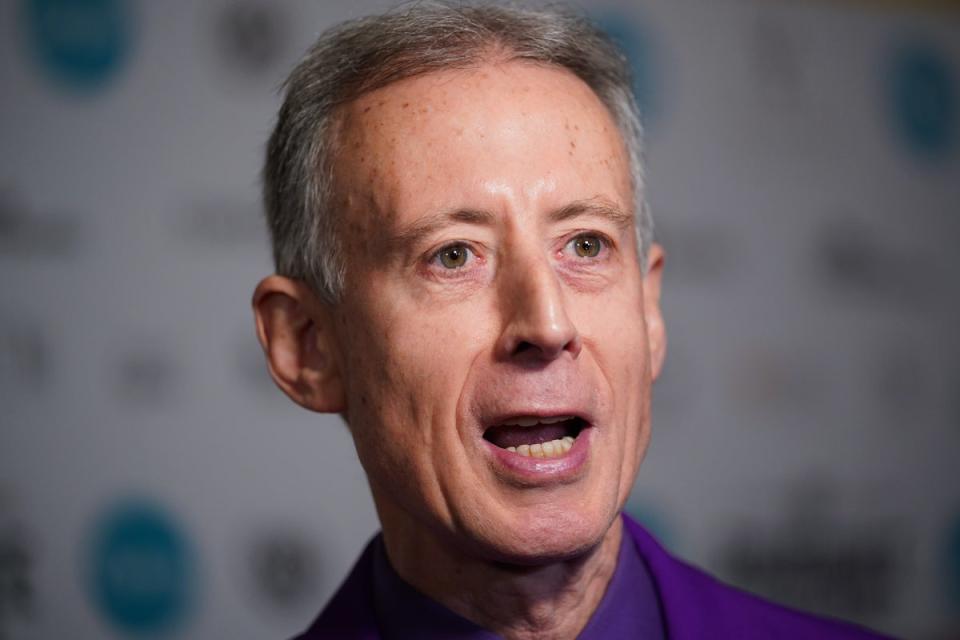Dame Esther Rantzen says she has joined Dignitas and that dogs have kinder deaths than people
Dame Esther Rantzen said she has joined Dignitas and that dogs have kinder deaths than people, as campaigners congregated outside of Parliament ahead of a debate on assisted dying.
Dame Esther said she is considering travelling to Switzerland for an assisted death, after being diagnosed with stage four lung cancer in 2023, and has implored MPs to attend Monday’s debate.
The Childline founder and broadcaster has branded the current law as “not right” and “not ethical”, and has called for a free vote on assisted dying in parliament.
MPs are to debate assisted dying for the first time in almost two years after a petition backed by Dame Esther, Dignity in Dying and the Daily Express secured more than 200,000 signatures.
She told the BBC’s Today programme: “I beg MPs to attend it, whatever their view, whether they support a change in the law or they don’t, it’s so important they hear the evidence from around the world because other countries are ahead of us, other countries have legalised assisted dying under carefully regulated circumstances.
“The evidence is clear, it does not damage palliative care, and in some cases, it has a really positive impact and for me personally, it would mean I could look forward in confidence to a death which is pain-free surrounded by people I love.
“Whereas the only other way of having a pain-free death to look forward to in confidence is to go to Dignitas in Switzerland, without my family. Because if my family go with me they could be investigated by the police well...for killing me or pressuring me to die, which is absurd I know, but it’s also extremely painful.”

In an interview with GMB, she added: “I had three deaths that happened soon after each other. There was Desmond, my husband, my mother and there was my dog. There’s no question, our dog had the best death.
“We discovered he had cancer and before the symptoms got painful, we put him to sleep. We offer our beloved pets a pain-free death and we can’t offer it to our beloved family.”
She is unable to attend the debate on Monday because she is too ill but campaigners and bereaved relatives are gathering outside parliament ahead of the debate.
Broadcaster Jonathan Dimbleby, who has described the current law as “increasingly unbearable” following the death of his younger brother Nicholas, a motor neurone disease (MND) sufferer, is expected to be among the high-profile figures gathered.
Others including actor Dame Susan Hampshire and long-time campaigner Peter Tatchell are said to be lending their voices to calls for a change in the law at a demonstration on Monday afternoon in central London ahead of the Westminster Hall debate.
Pro-change campaign group Dignity in Dying said terminally ill people and bereaved relatives will also be among those gathered, while the organisation My Death, My Decision described it as a “significant moment in the campaign for a compassionate assisted dying law”.

The petition, which has led to Monday’s debate, stated: “Terminally ill people who are mentally sound and near the end of their lives should not suffer unbearably against their will.”
Labour MP Tonia Antoniazzi, a member of the petitions committee, is due to open the debate, while victims and safeguarding minister Laura Farris will respond on behalf of the government. There will not be a vote.
The issue was last voted on in the Commons in 2015, when it was defeated at second reading stage by 330 votes to 118.
But it has been less than two years since a Westminster Hall debate on assisted dying took place, with one held in July 2022. On that occasion, some 38 MPs contributed to the three-hour debate.
Those who oppose a change in the law have voiced concerns that legalising assisted dying could put pressure on vulnerable people to end their lives for fear of being a burden on others, and argue the disabled, elderly, sick or depressed could be especially at risk.
Dr Gordon Macdonald, chief executive of the campaign group Care Not Killing, described Monday’s debate as a missed opportunity to talk about fixing the UK’s palliative and social care system.
He said: “Instead of discussing this dangerous and ideological policy, we should be talking about how to fix the UK’s broken and patchy palliative care system so everyone can have a dignified death.”
Assisted suicide is banned in England, Wales and Northern Ireland, with a maximum prison sentence of 14 years.
In Scotland, it is not a specific criminal offence but assisting the death of someone can leave a person open to being charged with murder or other offences.
Sir Keir Starmer has said he is “committed” to allowing a vote on legalising assisted dying should Labour win the general election, while Downing Street has previously said it would be up to parliament whether to debate legalising assisted dying again.


